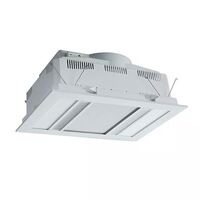
Martec Phoenix 3-in-1 Fan, Heater, Light & Exhaust White
Model # MBHP1000W
$324.50 $295.00 ex GST
Download the MJS App today and get everything you need at your fingertips



Need Help?
Need Help?

Martec Phoenix 3-in-1 Fan, Heater, Light & Exhaust White
Model # MBHP1000W
$324.50 $295.00 ex GST
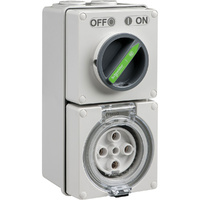
Clipsal Easy56 Round 5 Pin 32A Switched Socket
Model # EY56C532
$150.04 $136.40 ex GST

Clipsal Wiser Smart Smoke Alarm with 10 Year Lithium Battery White
Model # CLP599WSAL
$145.20 $132.00 ex GST
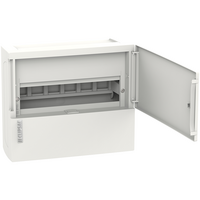
Clipsal Resi MAX 1 Row 12 Pole Surface Mount Switchboard
Model # RMXE112S
$44.33 $40.30 ex GST
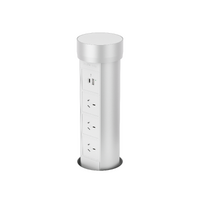
Point Pod Multi Pop Up Powerpoint 3 x Power 2 x USB Silver
Model # PPM01
$490.50 $445.91 ex GST
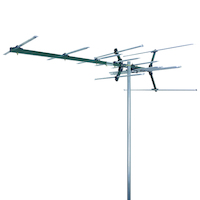
Matchmaster 03MM-DC21V Digital TV Antenna
Model # 03MM-DC21V
$137.50 $125.00 ex GST
 Click here to see our huge range
Click here to see our huge range
Author: MJS Electrical Date Posted:16 July 2020

Whatever your reason is, it is important to have an idea of what’s happening behind the electricals in your home or office. This guide will help you understand the basics, costs, and everything else you need to know about electrical installation.
The dictionary definition of an electrical installation is a ‘combination of electrical equipment installed from a common electrical supply to fulfil a particular purpose’. The electrical installation in domestic residences or small business buildings is made up of fixed parts of the electrical circuit. Examples of this include wall sockets, switchgear, electrical cables, electrical wiring, distribution boards, circuit breakers, possible a new switchboard and other electrical supplies. Electrical installation in its simplest form can cover the inputting of any electrical device, wiring, socket, outdoor lighting, etc into your property by a licensed electrician. Some products are also DIY so they may be installed by a handyman or your own hands.
As with any electrical work such as installation of indoor and outdoor lighting, prices vary vastly from scenario to scenario. The price will likely differ greatly between a job that requires a simple fix and one that requires rewiring an entire building, for example. The best way to get an accurate price is to contact your local licensed electrician for an exact quote. This would often involve them coming around to the property to assess the problem or job at hand before giving you a price they would charge to remedy it. Some companies will offer you a quote free of charge, while others will charge a call-out fee to come and inspect the issue at hand.
The average call-out fee in Australia is $90, while most companies have a minimum call-out fee of around $50. This service fee usually covers around 30 minutes of the electrician’s work with some including the cost of electrical supplies used, meaning that many will not charge if they are able to locate and fix the problem very quickly on the spot. It is also worth remembering that even if an electrician does not charge a call-out fee, they may simply charge extra for their first hour of work to make up for it. However, while the price can vary massively from job to job, we can have a look at the national averages.
In terms of hourly rates across Australia, you are looking at between $70 and $100 per hour for an electrician, depending on your location. Western Australia is among one of the more expensive locations to hire an electrician, with average prices of $86.29 per hour. Tasmanian electricians cost $79.33 on average, those in Australian Capital Territory will set you back $78.02 per hour, Queensland $75.22, South Australia, $75.21 and Victoria $68.86 per hour. Of course, these prices are just averages and can chop and change depending on a number of different factors.
Pro tip to save on electrical costs: make sure you buy supplies from electrical wholesalers to get the best price possible.
Electric jobs can range from a quick quote to a full installation depending on the work and electrical supplies needed, so the prices naturally change accordingly. So, what are the most common aspects of a job that will greatly change the price involved?
The size of the Job
Of course, the bigger the job is, the longer it will take, and the more the electrician will charge. If you hire a professional on an hourly basis, the bigger jobs will rack up a rather large price. It can be a good idea to agree to a fixed fee beforehand to avoid opening yourself up to a shock come the bill at the end of the job.
Difficulty Level
Again, the more difficult the job, the longer it will take and perhaps the more electricians it will need. As we explained before, a difficult job can rack up a high price if charged by the hour, so a fixed rate can be a good idea. It is also good practice to ask your electrician for an accurate timetable, as well as updates to check whether the project is on track or not.
Electrical Supplies
Not only do you have to think about the cost of labour when it comes to electric jobs but also the supplies that the electricians will need to carry out the task. Different types of jobs require different parts and different materials, which have varying prices depending on the manufacturer/supplier. Of course, the more materials needed and the more expensive the materials, the more you will be shelling out come the end of the job. It can be a good idea to ask the electrician what they are going to need before shopping around yourself for some potential deals to save money. You can also buy at trusted electrical wholesalers for cheaper prices.
Location
The prices vary from city to city in Australia, as we explained above. For example, you will likely pay more for a job in Western Australia than you would for the same job in Victoria. You may also find that you are charged more the further away you are from the electrician you are using. If you request for them to travel hours to get to you, be prepared to be charged for the privilege.
The Electrician
Different electricians will offer different prices. Shop around for the best fit for your project and budget.
As we have outlined, the price for a job can depend on many things, including which company you use, where you are located, what electrical supplies they need, and how long it takes them. Having said that, we can still look at the averages for particular jobs across Australia. When it comes to installing electrical wiring in a new house, for a medium-sized home that has easy access to said wiring, it will usually set you back between $4,000 and $8,000. However, this cost can shoot up depending on the cost of electrical supplies, the electrician’s hourly rate, the time taken, the size of the home, how accessible the wiring is, and more. Larger houses or those with restricted access to wiring can cost up to $20,000 to wire.
A number of different electrical supplies and parts can be used in wiring installation, depending on the house and the job in hand. Different jobs require different materials and accessories. These materials and parts can include: galvanised steel conduits, rigid and flexible PVC conduits, wires, telephone cables, flexible cords, outlets, pull boxes, junction boxes, fittings, light switches, convenient socket outlets, HDMI cable, telephone outlets, spur units, DP switch outlets, connector outlets, control switches, sockets, electrical switches, and much, much more. Electrical supplies from trusted manufacturers like Clipsal are also used.
The most common type of wire used in modern houses across Australia is called building wire. This is essentially a single or multiple individual wires all wrapped within a sheath of plastic for protection. These cables usually contain at least one current-carrying wire, a neutral wire, and a ground wire within the plastic sheathing. On the other hand, when a wire is set to be exposed and not within a wall/ceiling/floor, it is usually installed within a piece of metal or plastic tubing called a conduit.
Different colours mean different things in electrical work and it can be important to know which is which, as some carry live current and some do not. Active, or current-carrying wires, are usually red or brown. Neutral wires are usually black or blue. And earth wires are usually green or a mixture of green and yellow.
What are the basic tools for electrical work?
Electricians use a vast array of electrical tools & supplies on the job, but here are a few of the most common:
If you are doing some minor electrical work yourself, you can get any of the above from your nearest electrical wholesaler.
MJS Electrical Products and Supplies opened back in 2010 and in just a decade the company has managed to establish itself as one of the most trusted brands in all of Australia for your electrical needs. Since that first day back in 2010, the company and the range of products has grown astronomically, with MJS now providing absolutely anything and everything you could need for your next electrical job. MJS have built their brand around incredible customer service and product satisfaction, putting their loyal customers ahead of things like profit margins. MJS does not discriminate between handymen, professional electricians, big companies, and members of the public, offering the same impressive range of products and competitive prices for everyone.
MJS Electrical Products and Supplies is an electrical wholesaler made up of a small group of family members with a large and extensive history in the electrical trade. In fact, the brains behind MJS have been in the electrical wholesale business for over 20 years now, and they bring vast experience, knowledge, and knowhow to the table for their customers. Two decades of experience means that the MJS team knows the ins and outs of every product they stock, ensuring quality above all else. It also guarantees that everyone at MJS is able to answer any questions you may have about products, tools, jobs, and anything else electrical related.
MJS are well aware that the business should fit around the customer, not the other way around. That’s why they provide every avenue imaginable for fast orders with quick turnarounds. You can now browse the website for the latest electrical supplies, tools, materials, and equipment, before ordering online, via eBay, via phone, in store, via fax, or even by email. It really is that easy! Not only this, but MJS has set up an array of payment systems to ensure that you can spend in the way you want to spend. You can now pay for your orders in cash, by direct deposit, PayPal, credit cards, Afterpay, cheques, money orders, and bank cheques. All orders are shipped within 24 hours of it being placed to ensure that you receive your goods as soon as possible.
MJS Electrical Products and Supplies pride themselves on a four-pronged mission statement. Ensure the highest standards in product quality. Deliver the most competitive prices possible. Provide the best customer service experience. And develop lasting relationships with both customers and suppliers. So, head to the MJS website today and browse the latest in electrical supplies, gear, tools, hardware, and more.

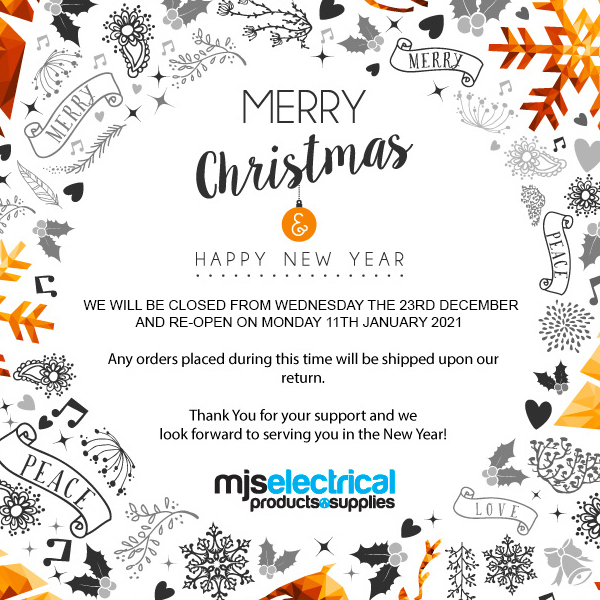


Add your favourites to cart

Select Afterpay at checkout

Log into or create your Afterpay account, with instant approval decision

Your purchase will be split into 4 payments, payable every 2 weeks
All you need to apply is to have a debit or credit card, to be over 18 years of age, and to be a resident of country offering Afterpay
Late fees and additional eligibility criteria apply. The first payment may be due at the time of purchase
For complete terms visit afterpay.com/terms
